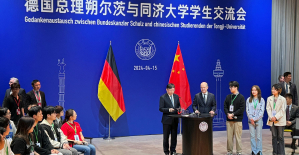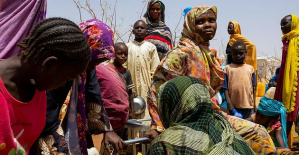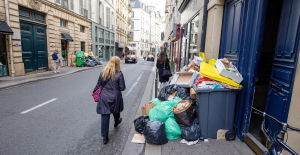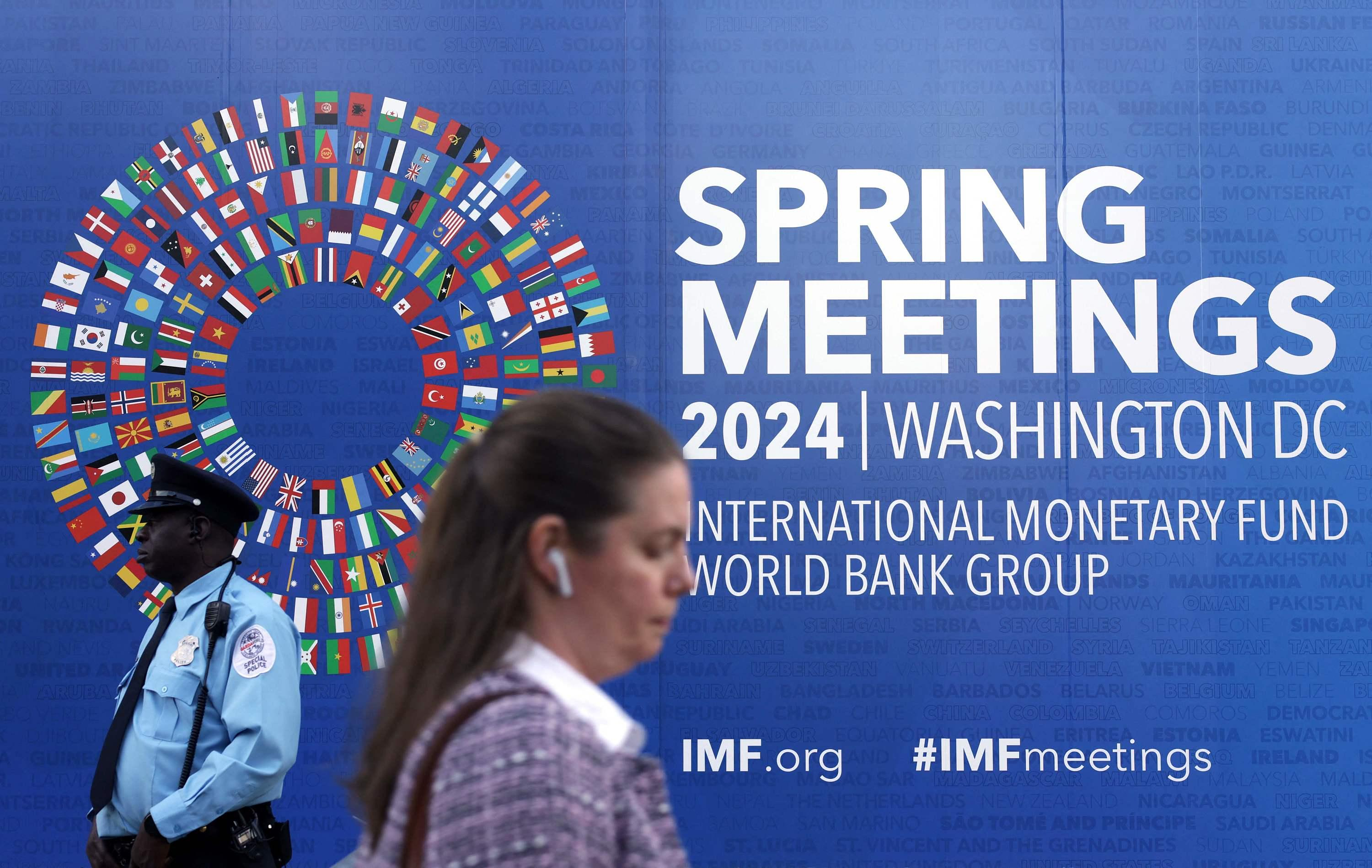The illegal trade in endangered animal and plant species represents an annual turnover of around 15 billion dollars for criminal networks, according to the environmental defense NGO World Wild Fund (WWF).
The Secretary General of CITES, Ivonne Higuero, called on Monday to "bring to justice" the criminal gangs which are dedicated to this traffic.
- "Absolute priority" -
"Despite considerable efforts, wildlife crime is still a serious challenge and we must address it as a top priority," Higuero said.
Delegates from the 183 States and the European Union, parties to the Convention, are attending CITES COP19 in Panama until November 25 alongside hundreds of wildlife conservation experts.
They will have to examine 52 proposals aimed at modifying the levels of protection set by the Convention.
The revision of the rules for trade in shark fins, reptiles, turtles and other wild species threatened with extinction or sources of health risks in the Covid era will be on the menu of the meeting.
It must also take stock of the fight against fraud and vote on new resolutions, in particular on the risks of zoonosis (disease transmitted from animals to humans) linked to trafficking, a subject that has become major with the pandemic of Covid-19.
CITES, in force since 1975, sets the rules for international trade for more than 36,000 wild species, ranging from the issuance of permits (more than one million authorized transactions per year) to total prohibition.
Organized every two or three years, the summit is taking place this year in the shadows and under the influence of two other UN conferences, which are also crucial for the future of living beings on the planet: COP27 on climate, underway in Egypt, and COP15 on safeguarding biodiversity, in December in Montreal.
“Over the next two weeks, CITES parties will discuss a wide range of critical issues and make important decisions for the conservation and regulation of international trade in endangered species,” explained the Secretary General of the Convention.
In 2019 in Geneva, CITES strengthened the protection of giraffes, almost prohibited the purchase of elephants by zoos, maintained the ban on southern Africa selling its ivory stocks, and listed 18 sharks in its Appendix. II, those of species whose trade is strictly limited.
This year, requiem sharks, hammerhead sharks and guitarfish rays should play the leading roles, with a noteworthy proposal to enter Appendix II in turn.
"It would be a historic moment, if these three proposals are voted on: we would go from controlling around 25% of the shark fin trade to more than 90%," Ilaria Di Silvestre, head of fisheries, told AFP. European campaigns for the International Fund for Animal Welfare (IFAW).
"We are in the midst of a very large extinction crisis for sharks", the "second most threatened group of vertebrates on the planet", abounded Luke Warwick, of the Wildlife Conservation Society.
“The fins can reach 1,000 dollars per kilogram on the markets of East Asia”, in particular to make very famous soups, recalls this specialist. A declining but still lucrative international trade, of which Hong Kong is the hub.
- The specter of Covid-19 -
This great summit of wildlife specialists is also the first to be held since the appearance of the SARS-CoV-2 virus, which could well be of animal origin.
The subject, for the first time put on the agenda, should generate intense discussions, a prelude to the debates which will continue on this subject at COP15 on biodiversity.

 Knife attack in Australia: who are the two French heroes congratulated by Macron?
Knife attack in Australia: who are the two French heroes congratulated by Macron? Faced with an anxious Chinese student, Olaf Scholz assures that not everyone smokes cannabis in Germany
Faced with an anxious Chinese student, Olaf Scholz assures that not everyone smokes cannabis in Germany In the Solomon Islands, legislative elections crucial for security in the Pacific
In the Solomon Islands, legislative elections crucial for security in the Pacific Sudan ravaged by a year of war
Sudan ravaged by a year of war Covid-19: everything you need to know about the new vaccination campaign which is starting
Covid-19: everything you need to know about the new vaccination campaign which is starting The best laptops of the moment boast artificial intelligence
The best laptops of the moment boast artificial intelligence Amazon invests 700 million in robotizing its warehouses in Europe
Amazon invests 700 million in robotizing its warehouses in Europe Inflation rises to 3.2% in March due to gasoline and electricity bills
Inflation rises to 3.2% in March due to gasoline and electricity bills Olympic Games-2024: which professions are likely to strike during the competition?
Olympic Games-2024: which professions are likely to strike during the competition? Pizzas sold throughout France recalled for “possible presence” of glass debris
Pizzas sold throughout France recalled for “possible presence” of glass debris “As for a football player, there is a contract”: Carlos Tavares defends his remuneration of 36.5 million euros
“As for a football player, there is a contract”: Carlos Tavares defends his remuneration of 36.5 million euros Stellantis: shareholders validate the controversial remuneration of Carlos Tavares
Stellantis: shareholders validate the controversial remuneration of Carlos Tavares Dune 3 will be the last film of Denis Villeneuve's adaptation
Dune 3 will be the last film of Denis Villeneuve's adaptation Shane Atkinson, humble disciple of the Coen brothers
Shane Atkinson, humble disciple of the Coen brothers Outcry from publishers against the authorization of advertising for books on television
Outcry from publishers against the authorization of advertising for books on television Eddy de Pretto celebrates his “last party too many” at the Olympia
Eddy de Pretto celebrates his “last party too many” at the Olympia Skoda Kodiaq 2024: a 'beast' plug-in hybrid SUV
Skoda Kodiaq 2024: a 'beast' plug-in hybrid SUV Tesla launches a new Model Y with 600 km of autonomy at a "more accessible price"
Tesla launches a new Model Y with 600 km of autonomy at a "more accessible price" The 10 best-selling cars in March 2024 in Spain: sales fall due to Easter
The 10 best-selling cars in March 2024 in Spain: sales fall due to Easter A private jet company buys more than 100 flying cars
A private jet company buys more than 100 flying cars This is how housing prices have changed in Spain in the last decade
This is how housing prices have changed in Spain in the last decade The home mortgage firm drops 10% in January and interest soars to 3.46%
The home mortgage firm drops 10% in January and interest soars to 3.46% The jewel of the Rocío de Nagüeles urbanization: a dream villa in Marbella
The jewel of the Rocío de Nagüeles urbanization: a dream villa in Marbella Rental prices grow by 7.3% in February: where does it go up and where does it go down?
Rental prices grow by 7.3% in February: where does it go up and where does it go down? Europeans: the schedule of debates to follow between now and June 9
Europeans: the schedule of debates to follow between now and June 9 Europeans: “In France, there is a left and there is a right,” assures Bellamy
Europeans: “In France, there is a left and there is a right,” assures Bellamy During the night of the economy, the right points out the budgetary flaws of the macronie
During the night of the economy, the right points out the budgetary flaws of the macronie Europeans: Glucksmann denounces “Emmanuel Macron’s failure” in the face of Bardella’s success
Europeans: Glucksmann denounces “Emmanuel Macron’s failure” in the face of Bardella’s success These French cities that will boycott the World Cup in Qatar
These French cities that will boycott the World Cup in Qatar Dortmund-Atlético: two months before the Euro, Griezmann warms up the engine
Dortmund-Atlético: two months before the Euro, Griezmann warms up the engine Football: Bernd Hölzenbein, 1974 world champion, died at 78
Football: Bernd Hölzenbein, 1974 world champion, died at 78 'Everything comes to an end': Surfing legend Kelly Slater moves closer to retirement
'Everything comes to an end': Surfing legend Kelly Slater moves closer to retirement Athletics: the victory of a transgender athlete causes controversy in the United States
Athletics: the victory of a transgender athlete causes controversy in the United States


















